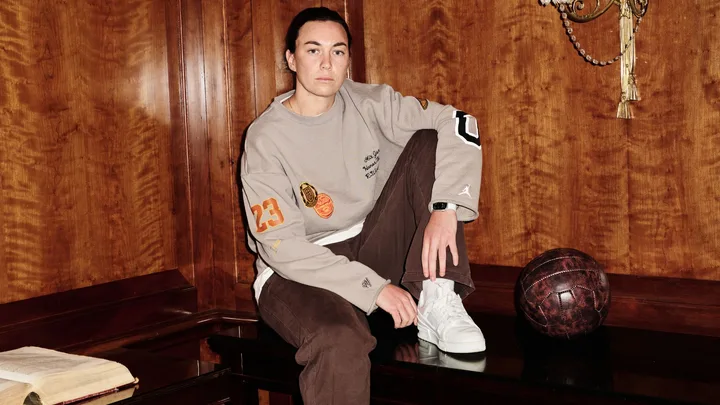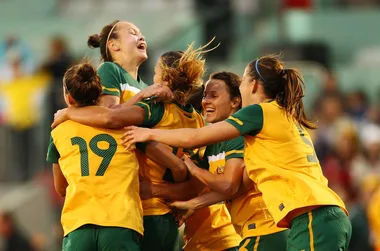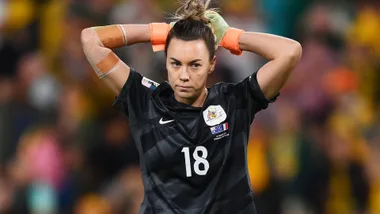Matildas goalkeeper Mackenzie Arnold may have played a central part in one of Australian sport’s most iconic moments, but the making of Mackenzie began well before the final buzzer sounded on that fateful August night.
In her new memoir, Macca: My Story So Far, Arnold shares her story of resilience, hard-won lessons, and just how winding the road to recognition has been for the goalkeeper.
Here, we share some of the inspiring takeaways and highlights from Mackenzie ‘Macca’ Arnold’s new book.
Before The Fever
From a Tescos supermarket in London to a caravan park on the New South Wales coast, footballer Mackenzie Arnold is recognised wherever she goes. But there was a time – not so long ago – when Australia’s number one goalkeeper was continually mistaken for a netballer.
On the eve of the 2023 FIFA Women’s World Cup, Arnold and some of her teammates from Australia’s national women’s football team, the Matildas, were returning to their hotel from a morning training session when a guest recognised them — kind of. He knew they were athletes of some sort but didn’t exactly nail which sport.
“I’m tall, I was used to getting that [netballer comment],” Arnold says over Zoom from her new home in Portland. In 2023, people recognised team captain Sam Kerr on the street, but the hype around women’s football hadn’t quite hit home yet.
As the tournament went on and the Matildas showed the country just how formidable they were, Arnold’s face became more familiar. “People would recognise me when I was on the street with Sam and Caitlin [Foord], but I think it was a little different for me because even though I’d been in the Matildas team for so long, I hadn’t been in the limelight in the same way,” she says.
And then came the historic never-ending tie-breaking penalty shootout against France that saw the Matildas enter the World Cup semi-final.
The World Cup Penalty Shootout Against France
On August 12, 2023, the country came to a stand-still as the Matidas and Les Bleues went into extra time at Queensland’s Suncorp Stadium. (This author was in an Irish pub in Mudgee where there were so many people, there wasn’t even room to raise a glass.)
In her memoir, Macca: My Story So Far, Arnold writes about the moment she stopped agonising over the potential of a shootout and accepted that it was going to happen. Five Les Blues players were going to line up and try to sink goal after goal past Arnold while all her teammates could do was watch.
“There’s the whistle. The saving grace,” she writes. “The signal that it’s time to actually do the shootout rather than angst over it. … I am in game mode.”
As she walked towards the goal, the sound of 50,000 people was deafening, she says, even though she wasn’t wearing her hearing aids. The shootout felt like it was going to last forever. Kick after kick, the tie would not break. Arnold hurled herself across the net, anticipated and correctly predicted her opponents’ movements, and saved three penalties in the longest penalty shootout in World Cup history.
When it was Arnold’s turn to kick against France, she missed, but returned to her own net to save France’s third and last attempt at victory. The Matildas were in the semi-final, the furthest any Australian side has gone at a senior World Cup, and a milestone that no host nation has reached since the United States reached the final four 20 years earlier.
Overnight, Arnold became famous. She was lauded as the country’s hero. The minister for defence, Richard Marles, jokingly resigned and named Arnold as his replacement.
Before the semi-final in Sydney, Arnold had breakfast with her family. She writes about being swarmed by new fans. Her quiet morning turned into a meet-and-greet. “That was the very first time I got recognised on my own, completely away from the team,” she says. “My family were all looking at me like, What is going on?!”
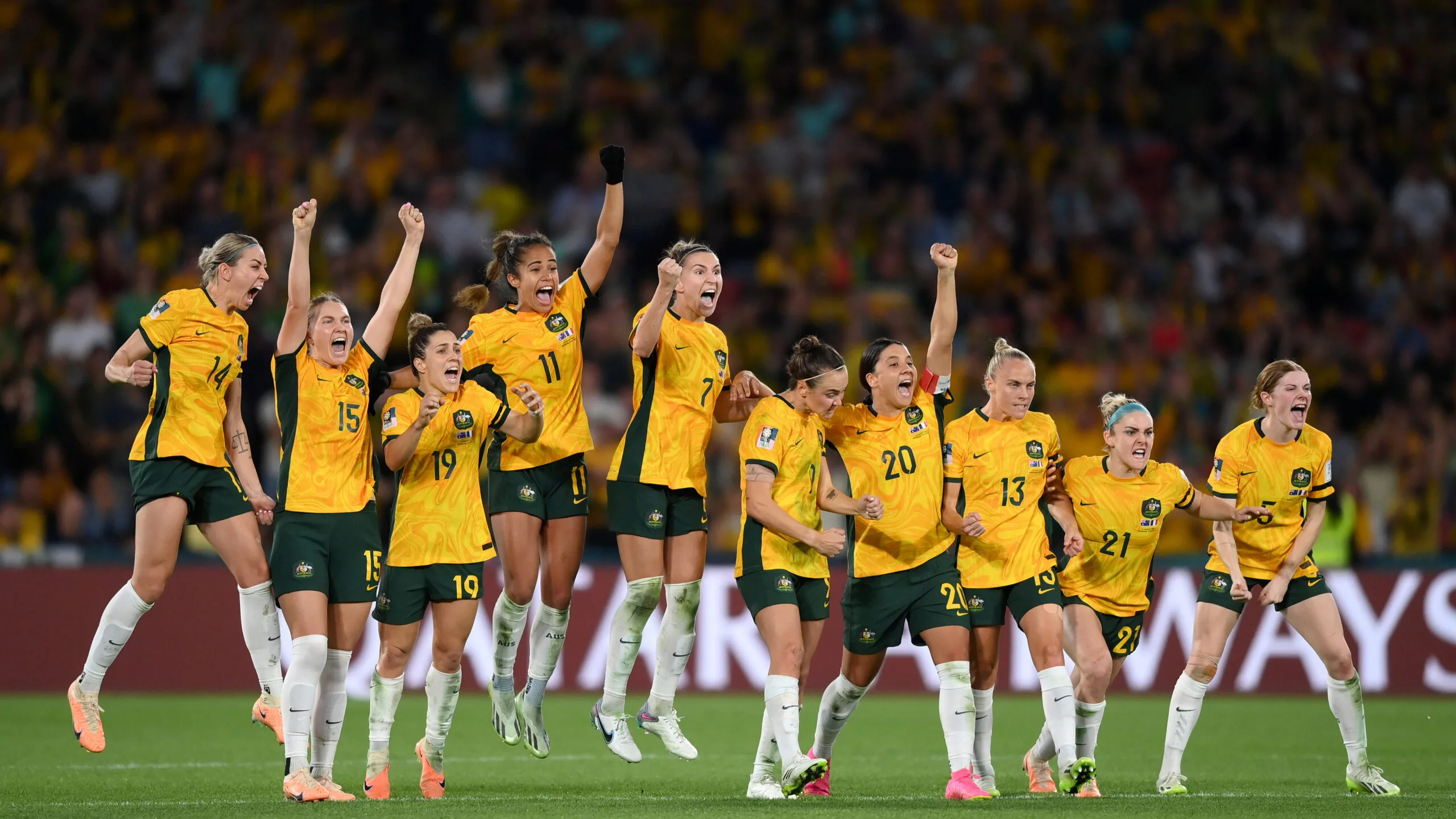
Football Is A Mind Game
Throughout her book, Arnold writes with brutal honesty about how hard she is on herself. A goalkeeper can’t hide their mistakes on the field like the others can, and Arnold felt the pressure keenly.
“When you make a mistake, everyone’s going to see it,” she says. “You carry that with you so heavily and it can be hard to shake. You just don’t want to be that person. It’s definitely hard at times, but it’s very, very rewarding. It takes a lot of practice to get to a place where you forget about [that pressure].”
“I took a lot of football decisions personally,” she writes in Macca. “[My coach’s decisions] had nothing to do with my worth as a person. But my brain, at the time, took the rejection and used it to confirm all the negative thoughts swirling around in there. The insecurities were endless. … The irony was that, even when others attempted to provide me with the assurance I craved, I did not know how to accept it.”
At one point, she writes, she nearly gave it all up. When she wasn’t selected for the 2020 Tokyo Olympic starting team and had to watch from the stands (not even from the bench), she writes that she wanted to leave the Matildas, maybe even give up football and play AFLW. “Do literally anything except keep trying to make it in an environment that had slowly consumed every scrap of my confidence,” she writes.
She credits her teammates with helping her stay strong. She’s been friends with several of them since they were 16 years old. “It was a really challenging time,” she says. “A lot of it came from my mindset and my lack of belief in myself, and not being in the starting team, but being around the girls and the team got me through that — being with the girls outweighed all the shitty times.
“They’re the only ones who understand what you’re going through at the time,” she continues. “You can talk to friends and family and partners, but they’re the only ones who are on the journey at the exact same time. To have them and to be able to lean into them and hvae a sounding board was so important. And to be able to switch off and have a laugh.”
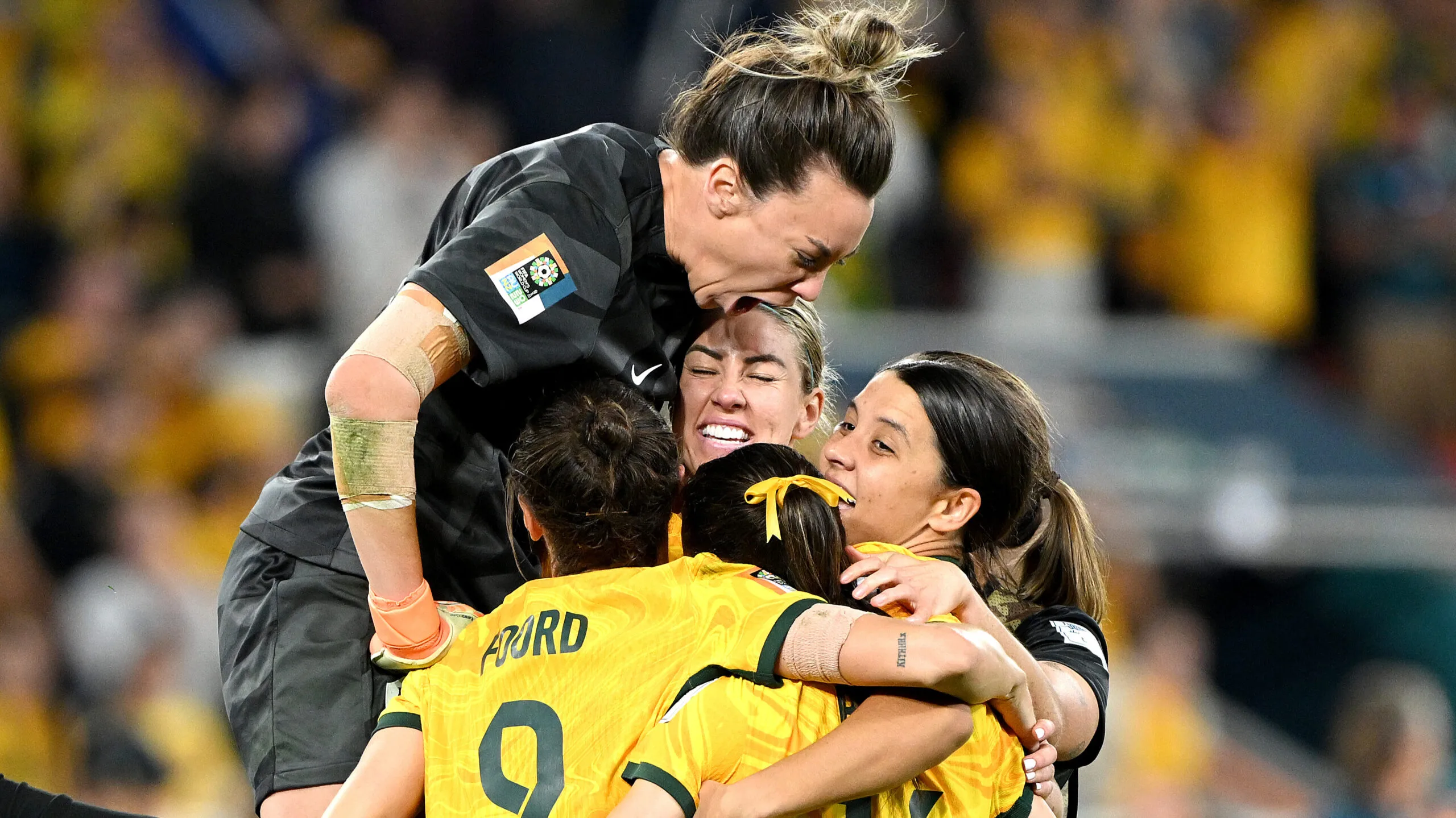
The Mackenzie Effect
Since the Matildas stopped the country in its tracks in 2023, womens sport has only continued to gain momentum. Football clubs across the country noted a surge in young girls joining the sport, and Prime Minister Anthony Albanese and the Labor Party committed to investing $200 million into women’s sport as part of the Play Our Way program. It’s also having a knock-on effect on other sports including AFL and cricket.
“Talking about women’s sport after the World Cup was weird, because I felt like we had been doing the same thing for the longest time,” Arnold says now. “That was my third World Cup, I’d been to a couple of Olympics, and yes, this was the furthest we had gone in any major tournament, but it was just weird to think that we had been doing everything the same, but it was only now that everyone was jumping on the train. It was crazy.”
The Mackenzie Effect went even further in April 2023, when Arnold posted to Instagram about needing hearing aids. Her older brother, Sam, had been wearing them since he was young, but Arnold says she was ignoring the fact that she might also have significant hearing loss.
“I was so scared, I think that’s why it took me so long [to have my hearing tested]. I was so worried about the image that I was going to portray,” she says. “Without my brother, I wouldn’t have gotten to that place. To me, his hearing aids were so normal, but I know how they can be perceived.”
She writes about being in a shopping centre in Lennox Head in NSW when a mother approached her and thanked her for being a role model to her children, one of whom had a cochlear impant. In February this year, “a couple of girls with hearing aids came to our win over Arsenal just to meet me and thank me”, she writes.
“To see the reaction from the kids and realise that I can be to them what my brother was to me was one of those really special moments,” she says. “I wouldn’t have gotten them without him, so it’s nice to know I can be that person for someone else.”
During the World Cup, Nike had refused to sell replica goalkeeper jerseys. Fans could only get jerseys of players in other positions, but as goalkeepers have continued to make names for themselves, Nike responded to demand and announced in February this year, during the Olympics qualifier tournament, that it would start selling a replica of Arnold’s purple goalkeeper shirt. It sold out in minutes.
“Going into the World Cup, our goal definitely was to leave a legacy, but to actually come out of it and look back now and see what we did – it’s still crazy to wrap your head around,” she says.
“We’re all overseas, so we’re a bit disconnected from Australia, but when we’re home and we see the stadium sell out every time, it’s so surreal and so special.”
What Mackenzie Did Next
In 2020, Arnold signed onto West Ham in the English Premier League, where she became team captain. There, she met her partner, Kirsty Smith, and they lived together in an apartment in London. But recently, Arnold felt the urge for a new challenge, and so in July she signed with the Portland Thorns FC in America.
Leaving West Ham and her London life behind was one of the hardest decisions she’s ever had to make, she says. “Being at West Ham was so comfortable,” she says. “I was captain of the team, I knew I was going to play every game, I was just going through the motions. Everything was just set out for me and I felt like I needed to make some sort of change to challenge myself, not just as a player but as a person.”
When Portland approached, Arnold thought, why not? “I was like, let’s go for it. It was outside my comfort zone, it scared the shit out of me. But, you know, I’m 30 now and I’ve signed for two and a half years, so this could take me to the end, we don’t know. There’s a bit of uncertainty and excitement, I’ve made this move all by myself, I’m in my own apartment for the first time ever — all these things I never would have done. But I think it was the right thing.”
Macca: My Story So Far by Mackenzie Arnold is out now in all good book stores.
